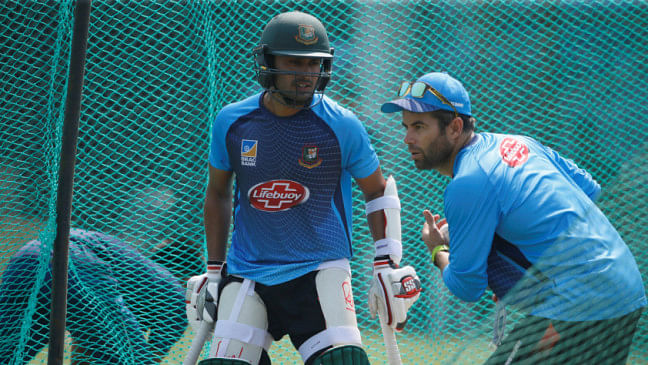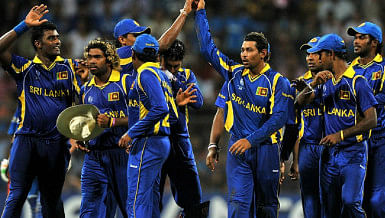Bangladesh announced themselves at this World Cup with a comprehensive, all-round victory over South Africa. A washout and two close losses, though, mean that they now have it all to do to make the knockout stages. Any comeback will start against the West Indies today, and the approaches of these two teams could not be more dissimilar.
“A lot of it is the nature of the [Bangladesh] wickets. You don’t get those big scores,” explains Bangladesh’s batting coach, Neil McKenzie on his side’s past struggle to reach 300-plus scores. “What I have picked up from the guys, however, is that they are very, very clean and consistent strikers of the ball. They have more of the skilled hitting side of things rather than the West Indian hitting to row Z type of players.”
The West Indies play a book-ended style of cricket; they go hard at the start and end, but their run-rate dips in the middle. Bangladesh, tend to build throughout the innings. The problem is that the rate of increase isn’t fast; since the 2017 Champions Trophy, of the teams competing at this World Cup, only Sri Lanka and Afghanistan score more slowly.

Bangladesh are a more evenly-balanced side. They have a lower dot-ball percentage and their average in the middle 30 overs is 41.2, more than 11.4 runs higher than the West Indies. The question for McKenzie is how to translate this platform into match-winning totals.
“We are really focusing on the Bangladesh strengths, that skilled hitting, trying to hit some space and go with what we have in terms of a talented bunch of skilled hitters,” says McKenzie, who was recruited as a batting consultant just over a year ago. “We have tried to improve their handling of the short-pitched bouncy ball, for example, and just given the guys options. I think the biggest thing that [head coach] Steve Rhodes and we look for is that there is not one way to get a job done. So if it’s going to be unorthodox but it is going to be effective we will go along with it.”
In their opening match the West Indies’ towering quicks peppered Pakistan with short balls to take seven for 55 and bowl them out for 105. While Pakistan average 17.85 against the short ball, Bangladesh’s is up at 29.27
“We have tried to influence them in terms of the running, and other ways of being innovative as well,” continues McKenzie. “They are fanatical about their cricket so they are always watching different players. Always coming up with ideas. They want to be something different.”
“We’ve also encouraged them to look at someone like Graeme Smith, who was unorthodox in a different way, and just trust those methods,” McKenzie explains. “If that’s your strength, have faith in what you do. A lot of these guys are unorthodox in some of the parts that they hit the ball, which is a positive. A guy like Smith, you bowl straight to him and he hits you through the leg-side. Most guys are just blocking it whereas he is squeezing it for two runs. That is what I mean by unorthodoxy, making it work for you.”
A more recent improvement to Bangladesh cricket, which McKenzie is quick to cite, is a selection policy which is now, finally, starting to back its players for an extended run. In 2018, six players played five or fewer matches before being dropped, more than any other year since Bangladesh were awarded ODI status in 1986.
“The whole system is getting a little bit more confident, a little bit more trustworthy,” reflects McKenzie. “We’ve tried to lay the onus on the players. To trust their game plans. Trust what you want to do, trust where you want to score. And how you want to score.”
“There are a few ex-players who are in the selection panel. They know what it takes to make it and how hard it is to be a young player coming into international cricket. So when I say give a person a chance, really give the guys a run. You’ve been chosen because we want your set of skills and we trust them. Yes, obviously we are going to try and nurture and push you as much as we can in the right direction, but the trust and the freedom is now there.”


 For all latest news, follow The Daily Star's Google News channel.
For all latest news, follow The Daily Star's Google News channel. 









Leave your comments